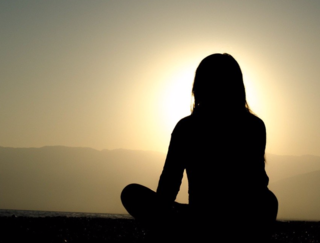
Stress
The Top 10 Stress Reducers in the Time of COVID-19
What are the steps you can take to calm your body and mind?
Posted April 7, 2020 Reviewed by Jessica Schrader

Taking the best care of yourself during this time not only can enhance your immune function, but it will also lower your stress hormones. There is no one step or supplement that will work on its own. But working on the items below can be a powerful combination to help you heal and, in some cases, avoid anxiety medications.
The following items will not only keep you calmer, but they can also help keep you healthier and support immune function. This has never been more important than this time of coronavirus. As a note, if you take medications, do not simply stop these without talking to your health care provider.
1. Keep Yourself on a Regular Schedule: Probably the most important thing you can do while sheltering at home is keeping to a schedule. All animals do their best when there is a routine. This lowers stress hormones. Low stress hormones mean better immunity too. It is key to get up at the same time, go to bed at the same time, eat approximately the same time, etc … and try not to binge-watch old episodes of The Office until 3 or 4 a.m.—save it for the next day. You will feel better.
2. Get Plenty of Sleep: Adequate sleep is one of the top ways to calm your body and detoxify your brain. Getting eight hours for most people is ideal, and getting to bed no later than 11 p.m. is shown to enhance the effect of melatonin, the sleep hormone that is high in children and may be a factor as to why kids are more protected from COVID-19.
3. Exercise Every Day: Exercise will burn stress hormones, balance blood sugar, increase immunity, and enhance antioxidant levels in the body. What drug does all that?
4. Have Relaxation Rituals: A morning mediation or yoga class is a nice way to start the day and goes a long way towards telling your body and mind things are going to be OK. These rituals will also lower inflammation and stress hormones, as well as balance blood sugar. Other relaxation rituals can include watching some comedy, doing art, singing, or even learning a musical instrument. I learned to tie a bowtie the other day and felt happier as a result.
5. Don’t Watch Too Much News: While it is important to be informed right now, the news will heighten stress response. Notice all the red on the news programs? That is to instill fear and keep you watching. So, take breaks. Even better, focus on good news and good things that are happening. Also, watch for positive signs of improvement in your world, and in the world around us to know that this situation will pass.
6. Eat Healthy Foods: Healthful eating will lower stress hormones and inflammation in the body. A diet that is mostly plant-based, has plenty of fiber, and healthy oils will support a calmer brain. Also, limiting sugars, fried foods and excessive carbohydrates are important for overall immune strength.
7. Avoid Smoking and Alcohol: Smoking not only ramps up the stress system, but it also increases the likelihood of greater sickness with COVID-19. Alcohol can also drive blood sugar problems, impair liver function, disrupt sleep, and can turn into a depressant when used too often and in excess.
8. Try to Get Outside: The outdoors have trees and plants. Plants and trees emote phytoncides which are chemicals that get into our bloodstream and can help calm us as well as lower inflammation. Also, the sunlight boosts serotonin and can increase vitamin D, too. As animals, we are made to spend time outside. So, if you have this opportunity, get out there every day.
9. Take Some Calming Nutrients and Herbs: Generally, I recommend fish oil, a quality multiple vitamin, and a probiotic as supplementation to start for good health. But I do recommend items like magnesium, CBD (see my previous post), and herbal compounds like passionflower or valerian. While mild in effect, along with the above recommendations, they can help create a calmer mood and happier brain.
10. Connect With Others: Remember that social distancing is not social isolation. Connection can take the form of speaking with friends, loved ones, or your therapist via the internet on a regular basis.
For myself, a vision I use to stay positive is that, once this is over and we are all safe and can gather again, I will see everyone I know and care about, and one by one, collect some big hugs.
Be safe everyone.
Read more on optimal immune support here or see this webinar about decreasing anxiety.



